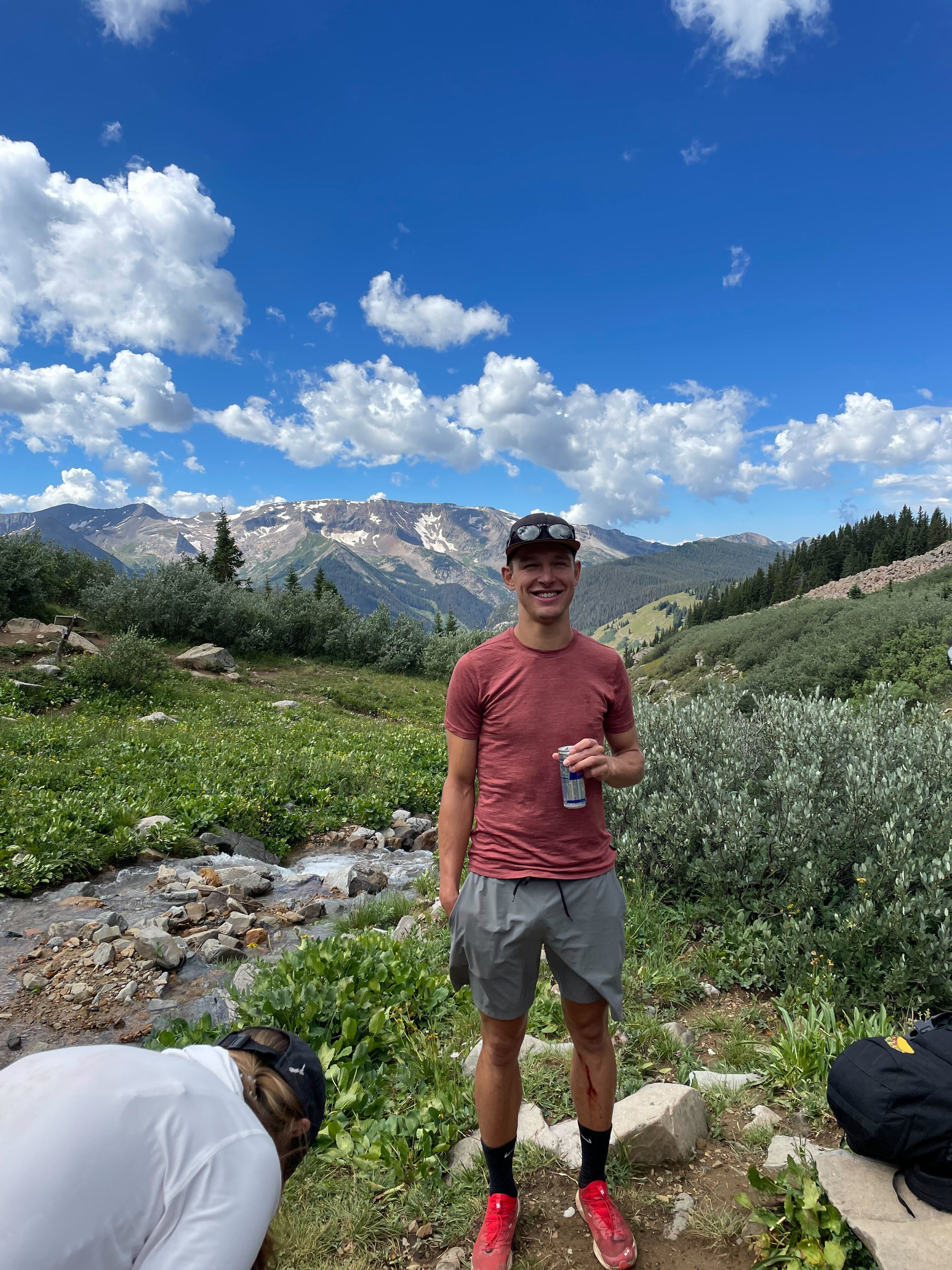- Careers›
- Life at AWS
Inside the role: insights from an AWS software engineer
In this Life at AWS Q&A, Lucas Rettenmeier shares how the work culture at Amazon Web Services (AWS) enabled his unconventional career journey, why he loves working as a software development engineer on the DynamoDB team, and his advice for achieving work-life balance.
Inside the role: insights from an AWS software engineer
6 min read | April 26, 2024 | Written by the Life at AWS team
In this Life at AWS Q&A, Lucas Rettenmeier shares how the work culture at Amazon Web Services (AWS) enabled his unconventional career journey, why he loves working as a software development engineer on the DynamoDB team, and his advice for achieving work-life balance.
Lucas Rettenmeier
Software Development Engineer II, Amazon DynamoDB
Lucas Rettenmeier's journey to becoming a software development engineer on the DynamoDB team at Amazon Web Services (AWS) didn't start with a traditional computer science education. Despite studying physics, an accidental internship application opened the door to an exciting career path in cloud computing.In this Q&A, Lucas shares insights from his career trajectory, including how his problem-solving skills and an insatiable desire to learn fueled his transition from solutions architect to software engineer.
Lucas also dives into what it's like navigating AWS's culture of ownership and ambiguity. He offers advice for newcomers on seeking mentors, prioritizing work-life balance, and embracing AWS's learning opportunities.

Getting started in software engineering without a computer science degree
Tell us about your career path to AWS.
I studied physics, so I don't have a computer science background. When I was looking for Amazon internships in Germany in 2018, I didn't really know what AWS was—I just loved being an Amazon Prime customer! I accidentally applied to an AWS internship in business development for industrial software. The role opened my eyes to the global scope and scale of AWS across so many industries, and I almost immediately realized that I liked the technical aspects of the work. I started to explore the best paths into technical roles at AWS in Europe, which led me to meeting solutions architects who shared interesting stories about their roles.
After your business development internship, how did you go about pursuing a more technical career path?
AWS’s Tech U program caught my eye. It takes people from both technical and non-technical backgrounds and trains them to become solutions architects or a few other technical roles at AWS. After six months of intensive training, I became a solutions architect, but I quickly realized I wanted to go deeper and specialize in a specific service area.
"One of my favorite things about Amazon is the Leadership Principles, like ownership, that really resonate with me. I own my own journey and work-life balance. As long as I get my work done, no one cares if I go on a three-hour bike ride in the afternoon to soak up the sun, and then work later in the evening. There's no rigid schedule saying I must be at my desk from 9 to 6 every day."
How did you land on the DynamoDB team as a software engineer?
A year into being a solutions architect, I wanted to apply to be an engineer on the DynamoDB team. I had never worked with relational databases before, and I just thought the DynamoDB user experience was awesome. I knew I wanted to be a part of it. I was fortunate that DynamoDB leaders saw my enthusiasm and potential, and gave me a chance despite not having a traditional engineering background. I think with any career trajectory, you need some luck and you need people who trust you.How did you earn the trust of other DynamoDB team members?
In my first year at AWS, I had the opportunity to speak on stage at re:Invent about DynamoDB and customer patterns using event-driven architectures. I think I really showed my enthusiasm for the service, which went a long way. Everyone could tell I was genuinely excited about DynamoDB. Then I did some work to demonstrate that while I was a solutions architect, I also deeply understood how DynamoDB functioned and how customers utilized it. Once you prove you can perform one role well, I think people believe you can figure out another role, too. Having that diverse background showed I was able to constantly learn new things. So, the DynamoDB team trusted that while I didn't have traditional engineering experience, I could apply myself and succeed as an engineer if given the opportunity. Earning trust is about enthusiasm, proven abilities, and a willingness to keep growing.What transferable skills did your background provide that prepared you for software development?
In my view, when you go to university, there are some jobs where you directly learn the specific skills needed for that role. But for many other roles, university teaches you how to learn, how to acquire new knowledge, and how to solve problems. That's what physics did for me.
I learned vital skills like breaking down complex problems and constantly building new expertise. While the subject matter was physics then, I can apply those same skills to the engineering challenges I face now at DynamoDB. Things like operating large distributed systems at scale and writing code that can handle that level of traffic and computing.
So while I didn't study computer science explicitly, my physics background taught me how to be a perpetual learner and problem-solver. Those mentalities translate incredibly well to software engineering once you dig into the new technical domain.How would you describe DynamoDB to someone without any knowledge of the service?
Almost everyone is interacting with DynamoDB anywhere from 10 to 100 times a day without knowing it. Whenever you put something in your Amazon shopping cart, that is stored in DynamoDB. When you watch your favorite movies, when you book a trip, when you book a hotel—a lot of these things are in DynamoDB. I think at the end of the day, what DynamoDB does is it's really fast, extremely scalable storage for data.
Join our team
Did you find what you were looking for today?
Let us know so we can improve the quality of the content on our pages
Interested in AWS?
We’re always glad to connect with talented people. Tell us a bit about what you want to do and we’ll keep you posted on relevant roles and what we’re building at AWS.
